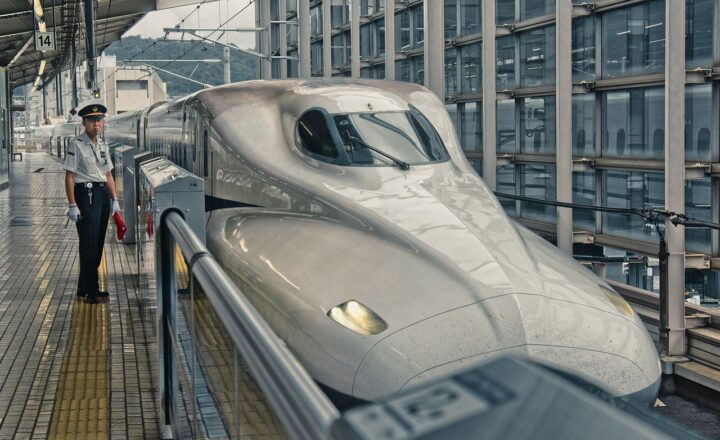The Secret Lives of Train Conductors: What It’s Really Like on the Tracks
November 11, 2024

Train conductors are often the unsung heroes of the transportation industry, working diligently behind the scenes to ensure the safe and smooth operation of trains. While the public primarily sees conductors at their posts, few truly appreciate the intricacies and challenges of their jobs. In this article, we’ll take a deep dive into the lives of train conductors, exploring their daily routines, unique experiences, and the vital roles they play in both passenger and freight transport.
1. A Day in the Life of a Train Conductor
The life of a train conductor can vary significantly depending on the type of service they’re assigned to—passenger trains, freight trains, or commuter services. However, some common elements remain consistent.
A typical day starts well before the first train departs. Conductors review schedules, check for any special notices regarding the route or equipment, and ensure they have all necessary documentation ready for the day ahead. Much like airplane pilots, conductors must be well-prepared and knowledgeable about their routes, including potential hazards and unique features of the terrain.
Once at the station, conductors typically perform a safety inspection, verifying that the train is in proper working order. This includes checking the brakes, lighting, and communication devices. Safety is paramount in the rail industry, and conductors are trained to handle emergency scenarios.
Once the train is ready to depart, conductors board, greet passengers, and begin the journey. Communication is a key aspect of their role; they must relay information between the train and control centers while also informing passengers about stops and safety procedures. Conductors often manage ticketing and handle customer inquiries, creating vital points of contact for travelers.
2. Building Relationships with Passengers
For conductors, the job is not just about operating a train; it’s also about interacting with people. Conductors often develop a rapport with regular passengers, who may commute daily or weekly. This interaction can turn a simple transit experience into a more personalized journey. Conductors serve as the face of the rail service, assisting passengers with special needs and ensuring they have a pleasant experience.
Positive customer interaction can lead to repeat business, and conductors often take great pride in offering excellent service. Many conductors recount heartwarming stories of assisting passengers—from helping a tourist navigate an unfamiliar route to being a comforting presence for those traveling long distances.
Conductor-pasenger relationships can turn strangers on the journey into friends, sharing stories during stops or waiting for delays. Conductors provide a much-needed human touch in an industry that is often viewed as purely mechanical or impersonal.
3. The Challenges of the Job
While train conductors enjoy many rewarding experiences, the role is not without its challenges. Adverse weather conditions, equipment failures, and unforeseen delays can impact schedules. Conductors must be prepared to adapt quickly to these changes while communicating effectively with passengers and railway control.
Understanding safety protocols is part of the job. Conductors are trained to respond effectively to emergencies, whether it’s a passenger medical issue or an unexpected stoppage on the tracks. Their training emphasizes not only technical skills but also situational awareness and crisis management.
Long hours and irregular schedules can be taxing, with conductors often working nights, weekends, and holidays. Being away from family during these times takes a toll, making it essential for conductors to establish a strong support network outside of work.
Despite these challenges, many conductors find fulfillment in their work, especially when they overcome obstacles or resolve issues to keep the train moving safely and efficiently.
4. The Evolution of the Role
The role of the train conductor has evolved significantly over the years, due to advancements in technology and changes in passenger expectations. Today’s conductors utilize sophisticated communication equipment and tracking systems that enhance operational efficiency and safety.
Digital ticketing and real-time schedules have transformed how conductors manage their responsibilities, enabling them to focus more on customer service and safety. However, the core duties of ensuring trains are running smoothly and passengers are taken care of remain unchanged.
With the introduction of high-speed rail systems, conductors are now trained not only in traditional rail operations but also in navigating the challenges of faster travel, including new safety protocols and passenger management strategies.
Train conductors continue to be integral to maintaining the charm and efficiency of train travel, blending tradition with modern practices to meet the demands of today’s transportation landscape.
5. Future Prospects for Train Conductors
Despite the rise of new transportation technologies and increased competition from automobiles and airlines, the future for train conductors looks promising. Rail travel has been undergoing a renaissance, with growing interest in sustainable transportation options due to environmental concerns. As more passengers gravitate to trains for eco-friendly travel, the demand for skilled train conductors is expected to increase.
Moreover, the implementation of smart train technologies and automated systems in the future may shift some responsibilities from conductors but will still require skilled professionals to oversee operations and maintain passenger safety. Training and adapting to new technologies will be essential for conductors looking to thrive in their careers.
The profession will continue to attract dedicated individuals who love the operational aspects of trains and the joy of serving passengers on their journeys.
Conclusion
Being a train conductor is much more than a job; it’s a commitment to safety, service, and community. Their daily experiences blend technical know-how with strong interpersonal skills, making conductors an essential part of the rail industry. Their behind-the-scenes work and dedication ensure that trains run smoothly, and passengers reach their destinations comfortably. As the landscape of rail travel evolves, train conductors remain at the forefront, ready to meet the changes and continue the tradition of exceptional service on the tracks.







